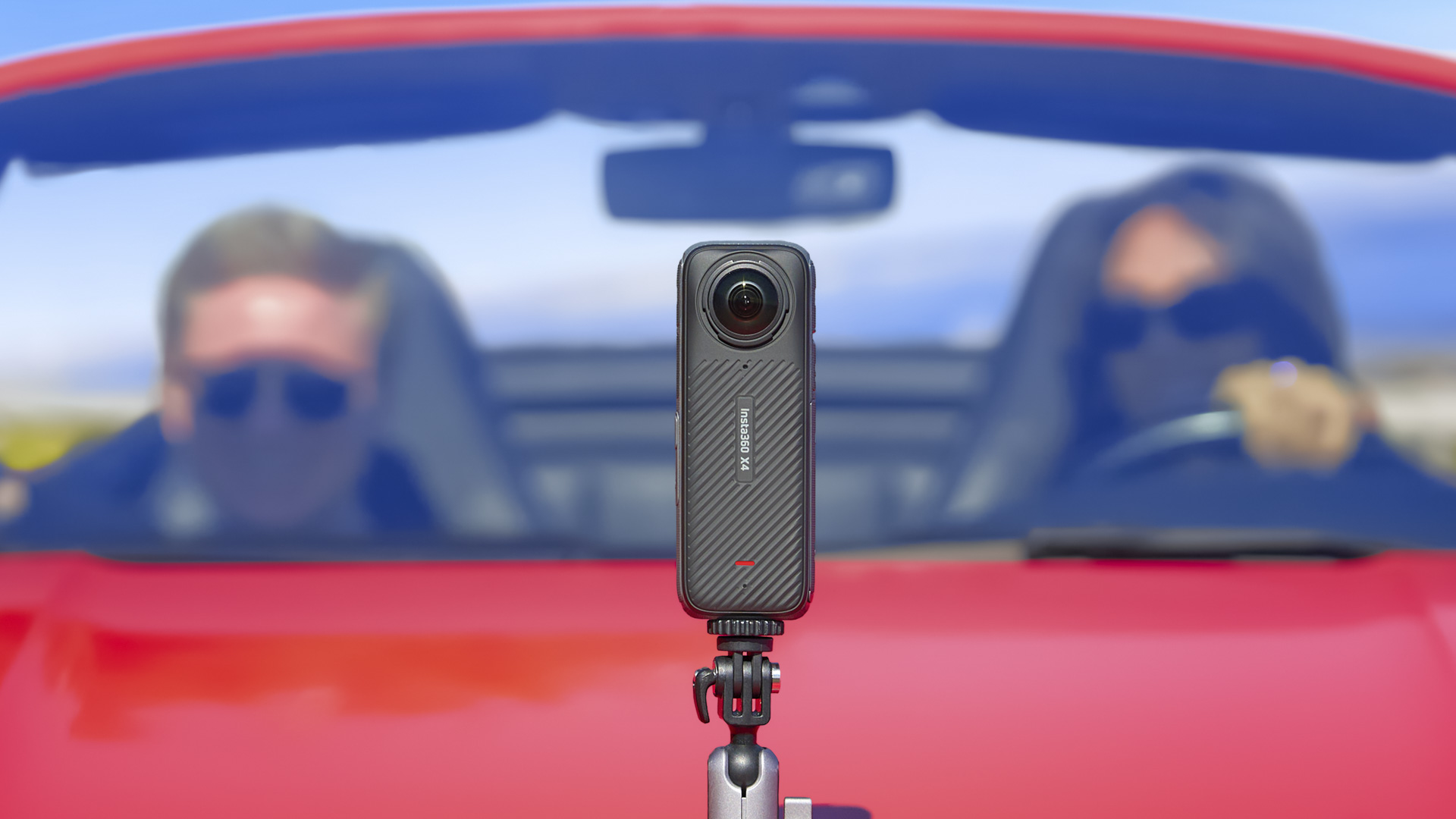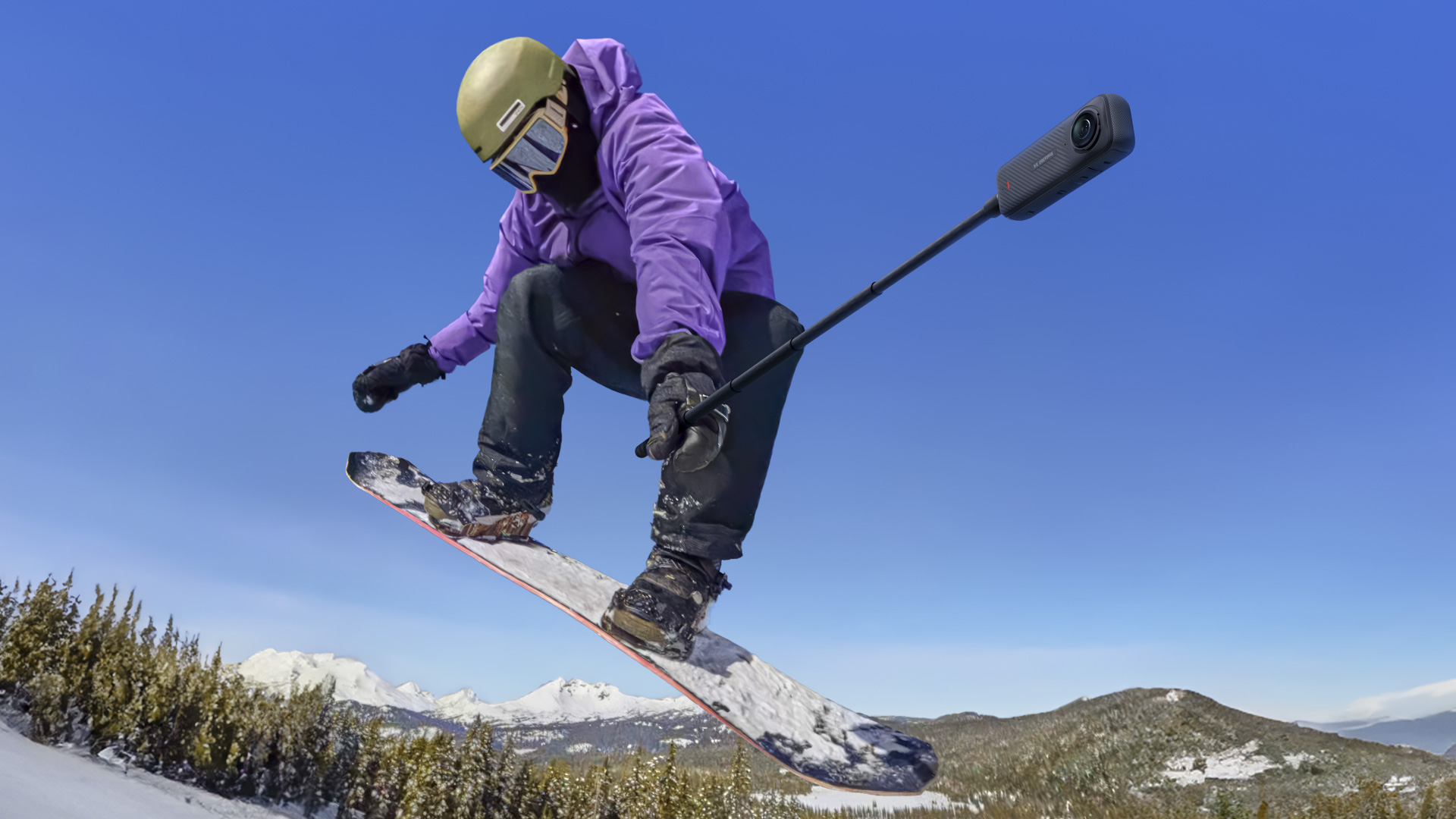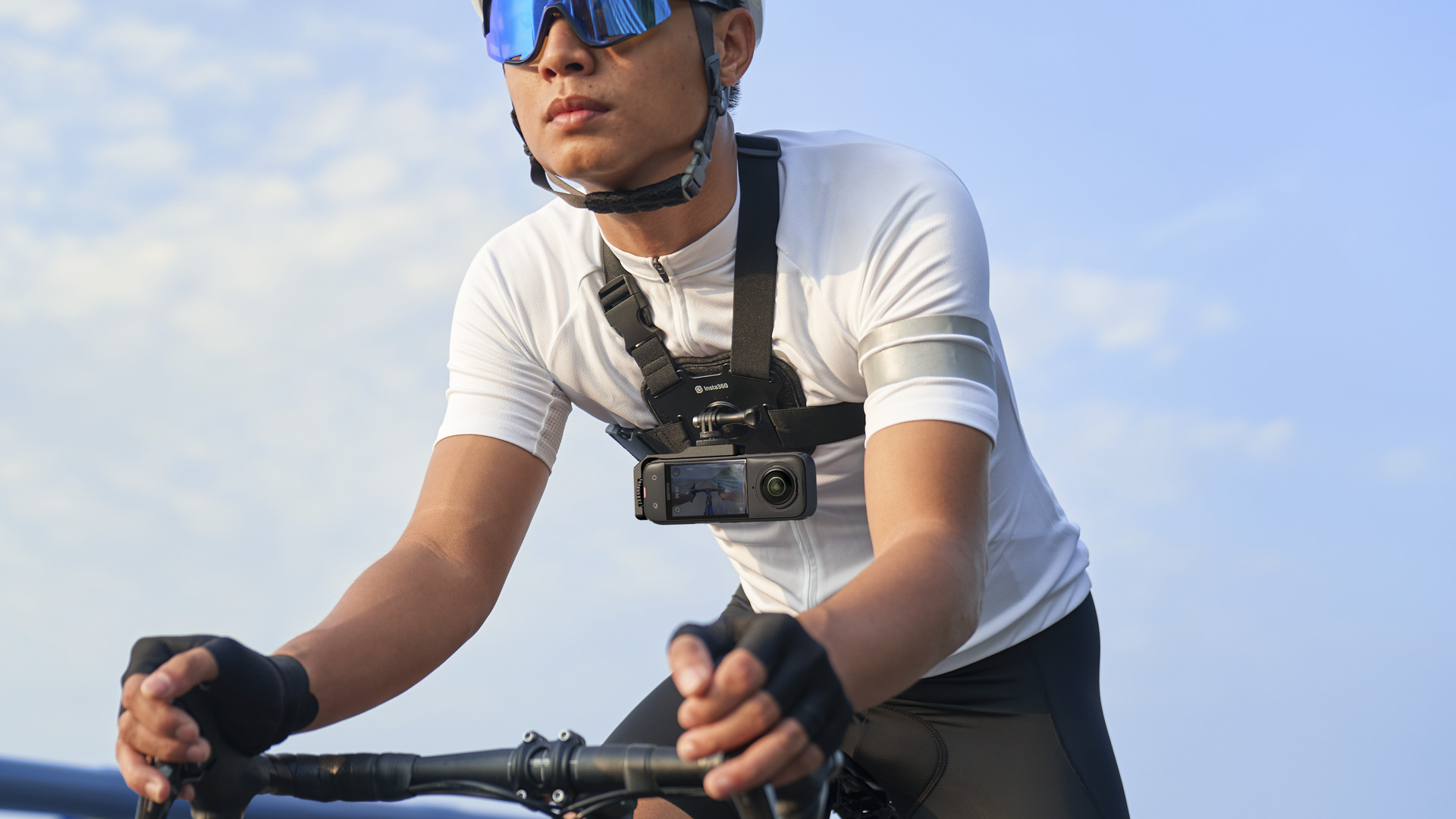The Insta360 X4 just became our favorite 360 camera – and the incoming GoPro Max 2 might struggle to beat it
360-degree 8K video, massively improved battery life, and more

Insta360 has unveiled the new 8K video-equipped Insta360 X4, a fourth-generation model that's set to replace its predecessor, the Insta360 X3, at the top of our list of the best 360 cameras thanks to a raft of significant upgrades.
2024 is set to be a bumper year for 360-degree cameras, a market which in the last few years has been dominated by Insta360. In addition to the Insta360 X4, GoPro has a GoPro Max successor in the works, and Canon is poised to launch an intriguing 360-degree / 180-degree 3D Powershot concept, which we saw in the flesh recently – and the gauntlet has been well and truly laid down by the Insta360 X4.
It's the company's first 360-degree camera that's capable of shooting 8K video (though not the first camera of its kind – we already have the excellent, if dated and less convenient, Kandao Qoocam 8K), and it arrives packing some welcome updates, notably much improved battery life.
Read our Insta360 X4 review.



Utilizing two 180-degree (approx) cameras, the X4 is capable of a shoot first, edit later workflow, because you know that everything around you will be in the frame, and thanks to the new camera's increased resolution, in greater detail. The single-lens mode can now shoot 4K video up to 60fps, too.
Throw in the X4's waterproof credentials up to 33ft / 10m (without the need for an additional housing), Insta360's excellent FlowState image stabilization, and 360-degree horizon lock, and the X4 effectively doubles up as one of the best action cameras. It could be the only additional camera that vloggers and adrenaline junkies need in addition to one of the best camera phones.
It also has useful credentials for motorcyclists, who can position the camera freely with one of Insta360's mounts, control the camera hands-free from a compatible Bluetooth headset, and capture their journeys automatically with Auto Dash mode and loop recording, effectively turning the X4 into one of the best dash cams for motorcyclists.
The Insta360 X4 is available worldwide now, and costs $499.99 / £499.99 / AU$879.99 – that's a small, and entirely reasonable given the upgrades, mark-up of around 10% over 2022's X3. A host of optional accessories are available too, including various selfies sticks (one of which is designed to enable you to capture 'bullet-time' effects) and mounts. Check out the Insta360 store for all the available X4 kits.
Get daily insight, inspiration and deals in your inbox
Sign up for breaking news, reviews, opinion, top tech deals, and more.
We've already had our hands on Insta360's latest camera, and you can discover more in our hands-on X4 review. What we'll also say here is that there's more to this fourth-gen model than its headline 8K video resolution, invisible selfie stick effect, and smart video modes.
There's significantly better battery life, with up to 135 minutes of record time, plus smart-gesture and voice-control functions. You also get removable screw-on lens guards to protect those bulbous and easily damaged twin lenses, where the X3 used non-removable sticky lens guards.
Crucially, Insta360 also offers one of the more intuitive mobile editing platforms for your 360-degree footage. In addition to Quick Edit where users can reframe their footage manually to focus on the action, there's an AI Edit mode that recommends how to frame the footage based on the action with just a tap.
In short, the X4 is about as user-friendly as 360 cameras come, and will sit pretty in our best 360-degree action cams guide for the foreseeable future. That increased resolution in particular reaps greater versatility, and GoPro is going to have to come up with something pretty special with the upcoming Max 2.
You might also like

Tim is the Cameras editor at TechRadar. He has enjoyed more than 15 years in the photo video industry with most of those in the world of tech journalism. During his time as Deputy Technical Editor with Amateur Photographer, as a freelancer and consequently editor at Tech Radar, Tim has developed a deeply technical knowledge and practical experience with cameras, educating others through news, reviews and features. He’s also worked in video production for Studio 44 with clients including Canon, and volunteers his spare time to consult a non-profit, diverse stories team based in Nairobi. Tim is curious, a keen creative, avid footballer and runner, and moderate flat white drinker who has lived in Kenya and believes we have much to enjoy and learn from each other.